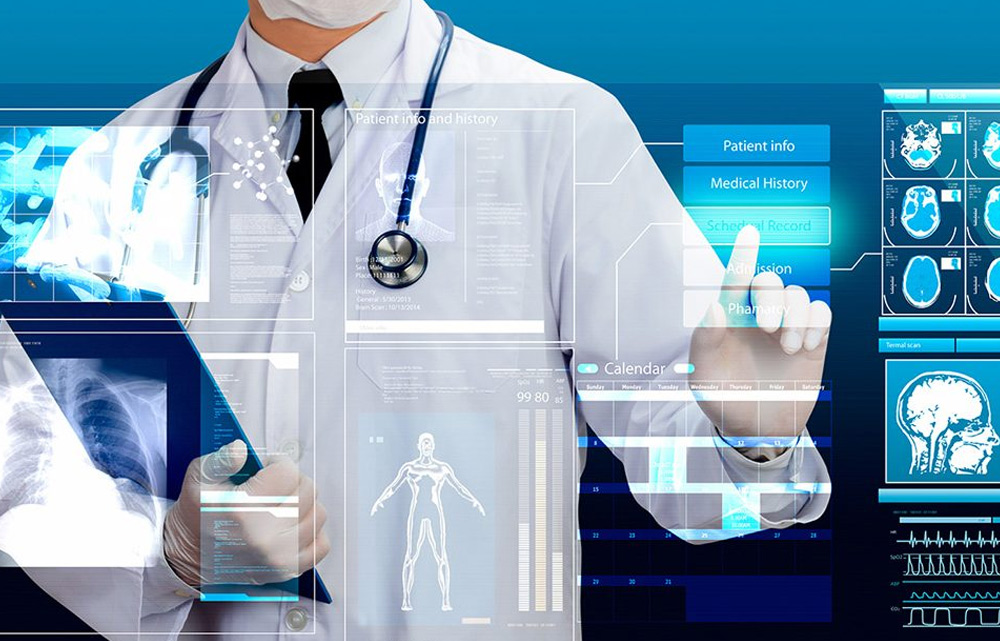Technology’s facility to change the world is no longer a foreign notion – it’s an actuality that is unravelling before our very eyes. The digitization of health care has given birth to several tools and means that improve healthcare services, including software that makes health information handier for patients, and keeps patient data safe in one place. Gone are the days when people had to wait for information from their doctor just to receive their test results, thanks to healthcare information technology (IT) assisted by special software such as EHR – Electronic Health Record, one of the different types of software used by healthcare experts.
The extensive range of digital health comprises categories such as mHealth, wearable tracking devices, telehealth and telemedicine, and custom-made suitable medicine.
From mobile medical applications and software that aid the clinical decisions doctors make every day to artificial intelligence and machine learning, digital technology has been conducting a revolution in health care. Digital health tools has the vast prospect to develop our ability to precisely diagnose and treat disease and to improve the delivery of health care for the individual.
Digital health technologies utilize computing platforms, connectivity, applications, and detectors for health care and associated uses. These tools cover a widespread array of utility, from applications in general wellness to applications as a medical device. They include technologies envisioned for use as a medical product, in a medical product, as cohort diagnostics, or as an aide to other medical products (apparatus, drugs, and biologics). They may also be used to improve or study medical products.
Factors Driving Digital Transformation in Health Care
- Disease anticipation
- Better-quality of life
- Healthcare upkeep
- Cost-effectiveness
- Personalization
- Enhanced approachability
- Suitability
- Improved health results
Benefits of Digital Health Technologies
Digital tools are giving providers a more holistic opinion of patient health through availability to data and giving patients marked control over their well-being. Digital health provides genuine prospects to develop medical outcomes and augment competence.
These tools can help users to make better-informed resolutions about their own health and offer new possibilities for enabling prevention, timely diagnosis of life-threatening diseases, and supervision of chronic conditions outside of traditional health care environment. Providers and other participants are using digital health knowhow in their quest to:
- Decrease inadequacies,
- Expand accessibility,
- Diminish expenditures,
- Increase quality of delivery, and
- Make medicine directly tailored for patients.
Patients and consumers can use digital health technologies to better supervise and track their own health and health-related issues.
The employment of technologies, such as smart phones, social networking, and internet browsing, is not only altering the way we interconnect, but also providing inventive ways for us to track our health and welfare and giving us superior access to statistics. Together, these innovations are leading to an amalgamation of individuals, data, tools, and connectivity to advance health care and health conclusions.

Technological Advancements in Health Care
Connected and Cognitive Devices: People want to be more in harmony with their health. One way it can be done is by exploiting connected and cognitive devices, including transportable, wearable, and ingestible apparatus. This allows patients to manage their health at any place at any time. Being able to supervise health information keeps patients involved in their quest for better health.
Robotics: Robots are already leaving a mark in health care. Robots have become so advanced that they’re working in tandem with medical staff at hospitals, programming routine chores (robotic process automation) such as claims handling, recording patients’ vitals, and more. Medical robotics is evident in the operating rooms also, as robots are being employed to facilitate minimally invasive methods and alleviate the physical drain of surgeries on the doctors. The use of robots in the medical field develops efficiency and the superiority of care that patients receive.
Data Analytics: Data analytics is one of the remarkable advancements in health care. To say that data analytics has revolutionized health care is an underestimation. Actionable discernments derived from substantial amounts of data leads to improved patient outcomes. Furthermore, data analytics is seeking to be so progressive that robots will be capable of recording physiological data during medical surgeries, augmenting the preparation process of surgical procedure and refining medical schooling generally.
Artificial Intelligence: Much like robotics, the use of AI technology can escalate output, cost competence, and increase quality of care. AI is also providing appropriate and tailored experiences to patients. For instance, virtual nursing assistants can essentially act as doctors by interacting with patients, collecting data on their symptoms, recognising illnesses, and even planning appointments.
Blockchain: Blockchain, a series of blocks connected together in a chain with each one storing records of economic transactions, has immense potential in the healthcare sector. Blockchain paves the way for secure transactions, and patients might feel safer about sharing their data as the process is more trustworthy. Moreover, blockchain makes data more manageable, in turn permitting other tools to make better use of data.
Digital technologies have already unlocked up a fortune of potentials for influencing the future of primary health care and certifying real public health action. They have catalysed a multitude of alterations in education, strategies and training as well as created new arrangements of communication, authorization and assignation. A recommitment by administrations to the objectives of primary health care and its morals of generality and equity promises more developments to come, with digital technologies crucial to the idea and its fulfilment.

